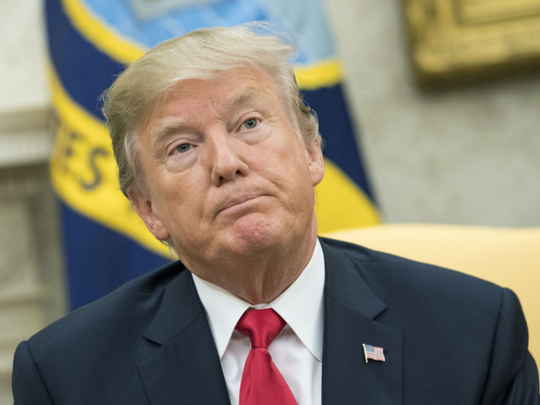
With United States President Donald Trump’s new Afghan policy, prospects for ending the Afghanistan war anytime soon have vanished. Whether that bodes well for US national security is another matter.
Nearly 16 years after US forces first entered Afghanistan, there they remain. Success, narrowly defined as creating Afghan institutions capable of preventing that nation from once more becoming a haven for terrorists, has proved elusive. Among those noting that absence of success was Trump himself. Before becoming president, he denounced the war as a “terrible mistake”, a “total disaster”, and a “complete waste”. In 2013, he had tweeted that “We should leave Afghanistan immediately.”
In the most important foreign policy decision of his presidency, he decided to expand the war. Acknowledging that Americans are “weary of war without victory”, Trump promised to press on. “In the end,” he insisted, “we will win.” His commitment to that goal is unambiguous, even if his strategy for achieving it is devoid of specifics. Yet, from this point forward, blaming former president Barack Obama for whatever happens in Kabul or Kandahar or the Hindu Kush won’t work. Afghanistan is Trump’s war now.
Furthermore, given the president’s pronounced aversion to admitting error, his embrace of the Afghanistan conflict is almost certainly irreversible. Apparently, he will support a request from his field commander to send a few thousand additional US troops into battle. Yet, barring the prospect that a handful of reinforcements will suddenly turn the tide and “win” — an outcome that at this point only the naive or the gullible will expect — America’s war in Afghanistan is almost certain to continue for the duration of Trump’s presidency. He will bequeath to his successor a conflict that is already the longest in US history.
Trump’s supporters will likely applaud his move. So too will the foreign policy establishment he once ridiculed. The establishment’s success in turning Trump around on Afghanistan has implications that go far beyond that particular country.
At least implicitly, Trump is endorsing the twin assumptions that since 9/11 have formed the basis for the larger war on terrorism: First, that sustained US military action provides the most effective means of defeating terrorism; second, that the physical presence of US forces in vulnerable Muslim-majority countries provides a means to render them inhospitable to terrorist entities. In short, if America keeps killing the bad guys and persists with nation-building (an effort Trump derides at the same time he implicitly endorses it), the problem will eventually solve itself.
Little evidence exists to support those propositions. Indeed, the post-9/11 US military experience not only in Afghanistan but also in Iraq and elsewhere points to precisely the opposite conclusion: The principal effect of the ongoing war on terrorism has been to exacerbate the problem that it purports to solve. The entire enterprise has been what Trump once understood it to be: A terrible mistake, a total disaster and a complete waste. Now, in effect, he has recanted.
A decision to stay the course in Afghanistan tells us nothing about what Trump may do next on North Korea, not to mention truly momentous matters such as the threat posed by climate change. He remains utterly unpredictable. Yet, his decision on Afghanistan does tell us one thing: Trump has abandoned what once ostensibly formed the foundation of his presidency — a commitment to “America first”.
Whoever or whatever benefits by prolonging the war in Afghanistan, it certainly won’t be the US.
— Los Angeles Times
Andrew J. Bacevich is the author of America’s War for the Greater Middle East: A Military History.









